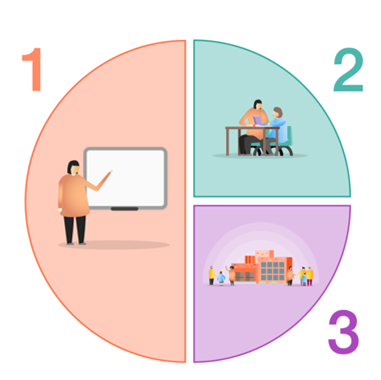How we teach at Staverton
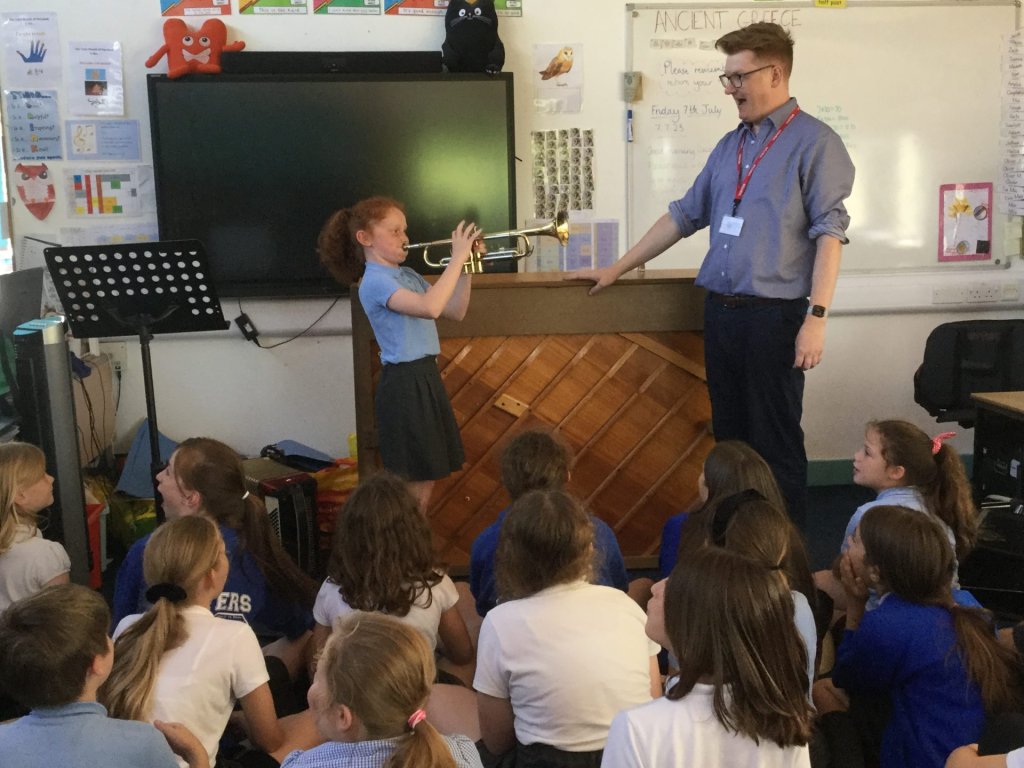
At Staverton, we want to ensure that all our children flourish and thrive, learning the key knowledge and skills that will allow them to meet the world. Teaching and learning pedagogy drives this intent.
We understand that effective learning happens when teachers ‘tune in’ to what children need in order to craft the conditions where every child will thrive.
Providing the right conditions for learning means that teachers will observe and learn, then make selections from a wide range of strategies and lesson designs to help all children, regardless of background, needs or abilities, consciously attend to their learning goals.
We recognise that this does not happen without being intentionally inclusive. To be intentionally inclusive means to be equitable. To do this, teachers will identify the needs of all the children to build a robust teaching and learning provision: we call this a universal provision. In addition, to ensure we are intentionally inclusive, teachers will then organise additional targeted support which will be used to enhance what is universally available. Our teaching and learning pedagogy has been deliberately designed to deliver this equitable approach.

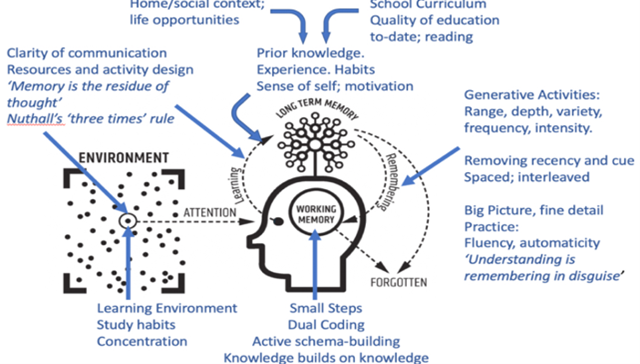
Cognitive Process
Underpinning this equitable approach and the choices teachers make is the cognitive process that constitutes learning. Our teaching team use this learning theory to enable their children to:
- think about the learning
- engage and remain active in the learning process
- activate prior knowledge
- make new meanings based on what they have learned and remembered – this will take various forms
- build fluency through consolidation, rehearsal and retrieval practice
- apply knowledge to new situations
- evaluate the success of the learning through checking and feedback
Responsive and adaptive teaching
To ensure the teaching and learning at Staverton is intentionally inclusive we are responsive and adaptive in our teaching. By responsive we mean teachers will use feedback to respond to need. By adaptive, we mean teachers will tweak or change their approach or resources based on the needs of the child in that moment.
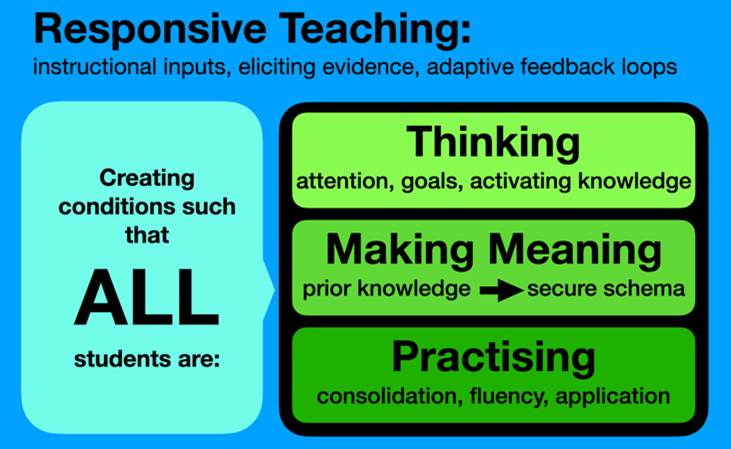
Responsive approach
During lessons and sequences of lessons teachers will tune into how the children are learning by asking:
Is everyone thinking?
Is everyone making meaning?
Is everyone practising?
This in-the-moment assessment will allow teachers to make adaptations so that all children are able to make progress towards the learning goal.
Adaptive approach
At Staverton, we understand that being responsive to the needs of all children requires a wide range of strategies. Whilst teachers will use their own professional gut-feelings to select the best strategy at any one moment, we use the 5 a-day research to guide our teachers in using ‘best bets’.
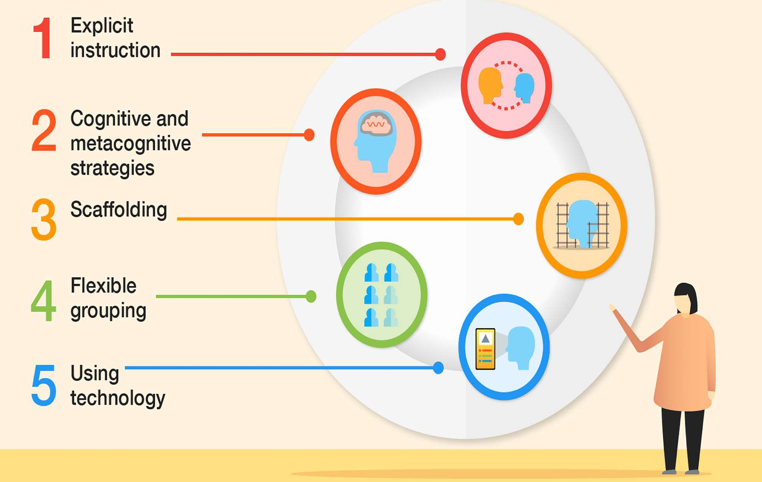
The Education Endowment Foundation’s (EEF) 5 a-day.
The strategies used by our teaching team are rooted in research informed evidence into the very best strategies for children who are currently SEND or in receipt of pupil premium. This research recognises that getting the provision right for these children means getting it right for everyone.
Pedagogy
Lesson Design
At Staverton, we recognise that effective lesson design is the structure that links the cognitive process to responsive and adaptive teaching. We define lesson design as the order and organisation of the learning.
To ensure our lesson design is effective we use Rosenshine’s Principles of Instruction and small learning steps: Retrieve – I do – We do – You do.

Teachers use the Engage/I do/We do/You do structure to plan and deliver their lessons across the curriculum.
In the Early Years, children will be introduced to this lesson design structure through explicit teaching in phonics, and through the movement from teacher input to learning in the continuous provision.
Task design:
We understand that effective task design needs to provoke curiosity and motivate children to learn for themselves. Teachers use various activities to do this. They will:
1. design tasks by framing new material as a question or problem to answer
2. use concrete or experiential resources and opportunities, such as using manipulatives in a Mathematics lessons, historical artefacts, educational visits to support and connect the knowledge to the world..
3. In the Early Years, teachers will incorporate learning tasks into the continuous provision. Children will interact with this provision and, as a result of carefully crafted tasks or provocations, secure knowledge and skills through playing and exploring, active learning and creative and critical thinking.
Supporting teacher agency and workload
Staverton’s teaching and learning pedagogy allows the teachers to select appropriate methods for their subject, age of pupil and stage of learning to ensure that maximum progress is taking place.
No frequency of the above teaching methods will be stipulated in any subject area but teachers will follow the research-informed principles set out in this policy to ensure consistency for all our children from EYFS to Y6.
Teaching and learning professional development
At Staverton, we know that what happens in the classroom makes the biggest difference. A relentless focus on the quality of teaching is important for all but vital for some.
This means, we are research informed and invest in professional development opportunities to help teachers identify, learn and improve the quality of teaching. These opportunities are then driven through the SDP, the SEND action plan and the pupil premium strategy. Teachers will explore ideas through gap tasks, lesson study and collaborative learning reflections.
Influences
This policy has been informed by extensive research into high quality inclusive teaching. We recognise the work of Barrack Rosenshine, Alex Bedford (Pupil Book Study), Tom Sherrington (Walkthrus) and The Education Endowment Foundation.
Impact
This policy should not live on a static document; methodologies should be evident in the classrooms across our school.
